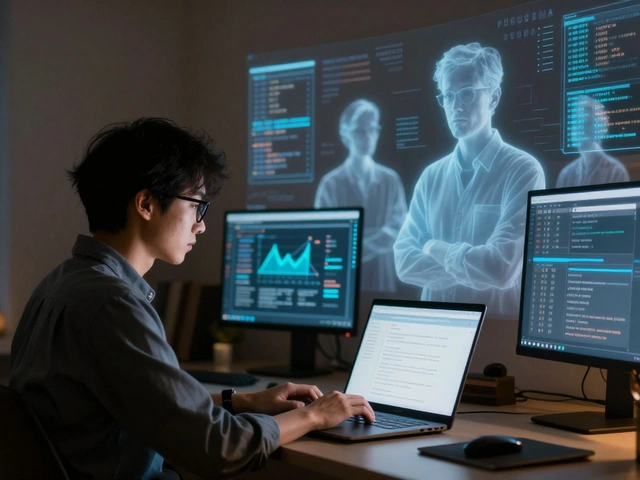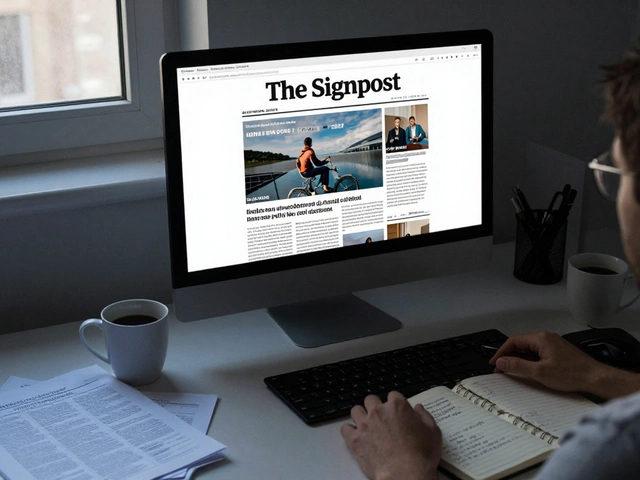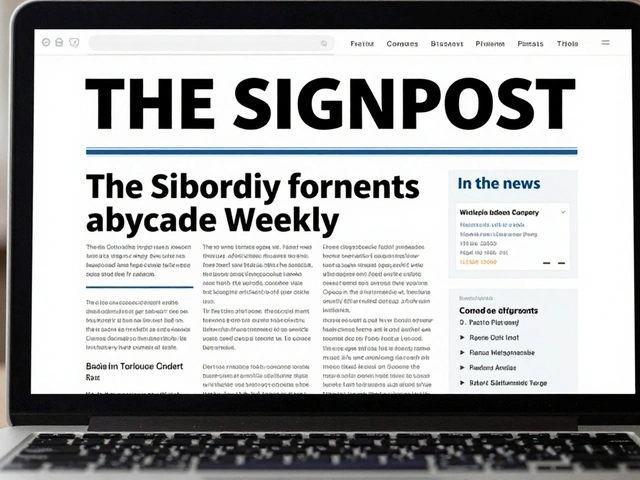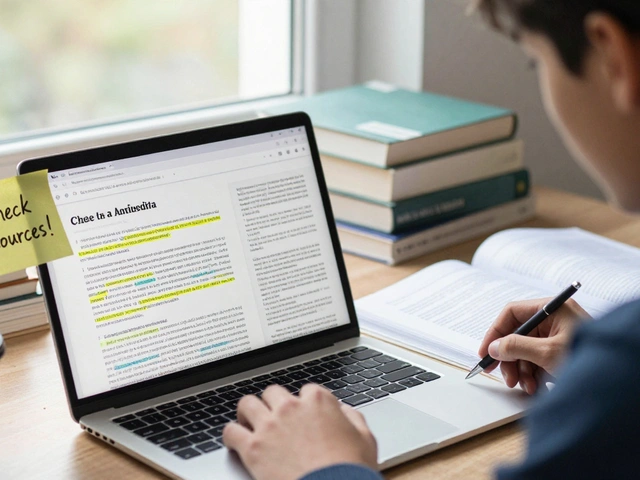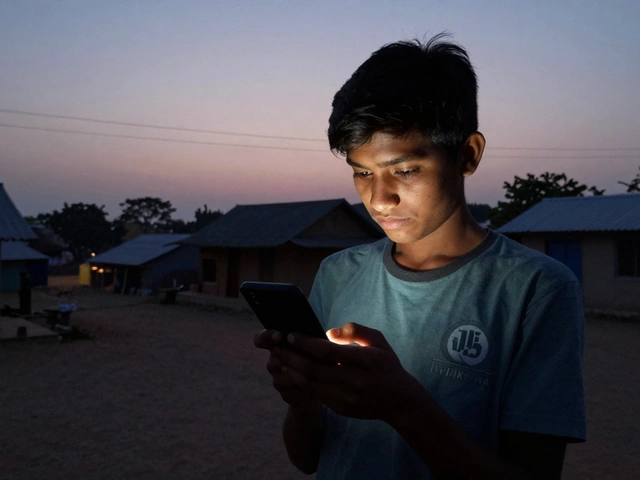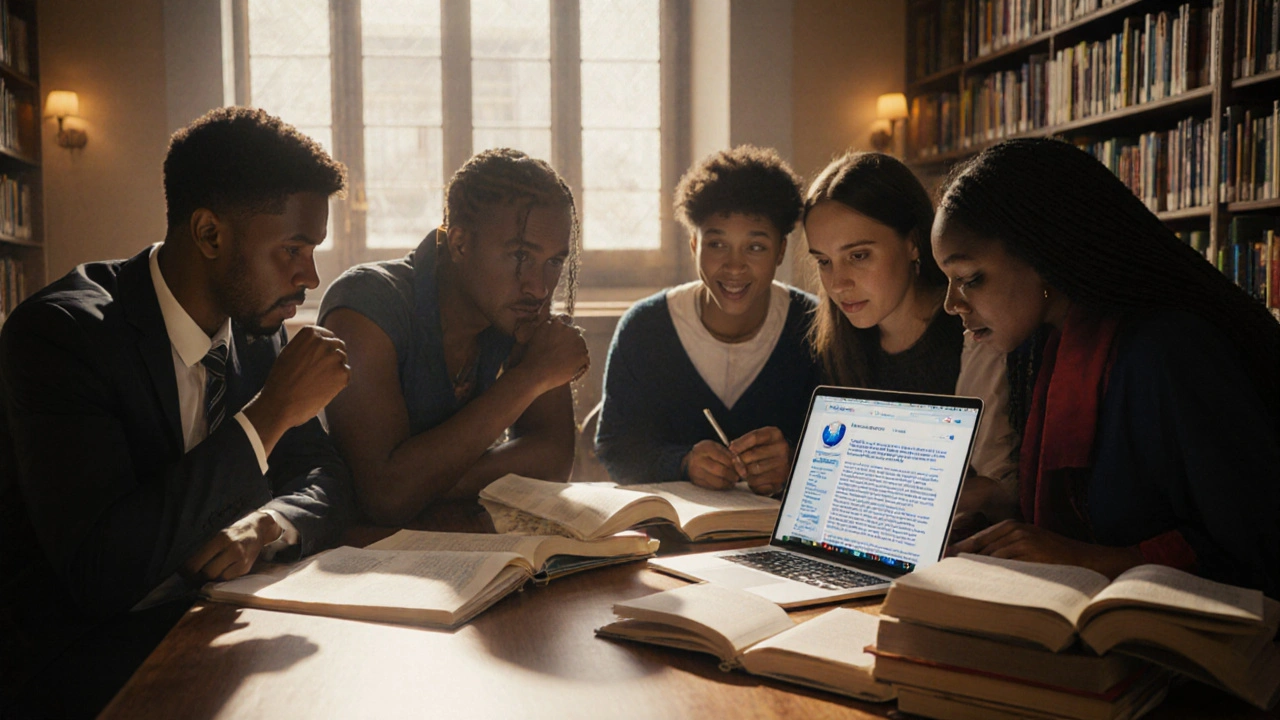
Wikipedia isn’t just a website-it’s a living archive of human knowledge, edited by millions, cited by students, and scrutinized by researchers. Since its launch in 2001, it has become the most visited reference site on the planet. But what do actual academic studies say about it? Not the opinions, not the blog posts-the peer-reviewed research. Over the last two decades, hundreds of studies have examined how Wikipedia works, who writes it, how accurate it is, and whether it belongs in scholarly work.
Is Wikipedia Reliable? The Evidence
A common myth is that Wikipedia is full of errors because anyone can edit it. But research tells a different story. A landmark 2005 study in Nature compared 42 science articles from Wikipedia and Encyclopædia Britannica. Independent experts found no significant difference in accuracy. Wikipedia had 4 errors per article on average; Britannica had 3. That’s not perfect, but it’s close enough to challenge the idea that it’s inherently unreliable.
Later studies confirmed this trend. A 2014 analysis of 1,500 medical articles found Wikipedia’s accuracy matched that of standard medical textbooks for basic topics. Even in complex areas like pharmacology, errors were rare and usually minor-like outdated dosage info, not outright falsehoods. The system self-corrects fast. Most vandalism gets reverted within minutes, often by automated bots.
But reliability isn’t just about facts. It’s about depth. Wikipedia excels at summarizing well-established knowledge. It struggles with emerging topics, niche subjects, or areas with little consensus. A 2019 study showed that articles on political science topics written by experts were more detailed and nuanced than those edited mostly by casual contributors. The quality depends on who’s editing-and how many of them.
Who Writes Wikipedia? The Editors Behind the Scenes
People assume Wikipedia is written by random strangers. It’s not. The core group is small, dedicated, and surprisingly homogeneous. A 2011 study from the University of Minnesota found that just 1% of users produced 50% of all edits. And that 1%? Mostly male, mostly from North America and Western Europe, mostly between 18 and 35.
That imbalance shows up in content. Articles on female scientists, non-Western history, or indigenous languages are often shorter, less cited, and updated less frequently. A 2020 study analyzing over 2 million articles found that biographies of women made up only 18% of all biographies, despite their historical presence. The same study showed that articles about African countries were 30% shorter on average than those about European nations.
Why? Because editing requires time, technical skill, and confidence-things not equally distributed across demographics. Wikipedia’s culture, with its strict citation rules and hostile edit wars, can be intimidating to newcomers, especially women and non-native English speakers. Researchers have called this the “participation gap.”
Wikipedia in the Classroom: Teaching Tool or Academic Risk?
Many professors ban Wikipedia in research papers. But some are changing their minds. A 2018 study at the University of Edinburgh asked students to write and improve Wikipedia articles as part of their coursework. Results? Students improved their research skills, citation accuracy, and writing clarity more than those who wrote traditional essays. They learned how to evaluate sources, not just copy them.
Another study from the University of Illinois tracked over 500 students who edited Wikipedia pages on public health topics. After the assignment, 87% said they could better distinguish credible sources from misinformation. The act of editing forced them to engage with primary literature-something most students skip when writing a standard term paper.
Still, Wikipedia isn’t a primary source. You can’t cite it in a journal article the way you’d cite a peer-reviewed paper. But you can cite the sources within Wikipedia. Many academics now use it as a starting point-a way to find key authors, dates, and studies quickly. A 2022 survey of 1,200 scholars found that 72% used Wikipedia to get an overview before diving into academic databases.
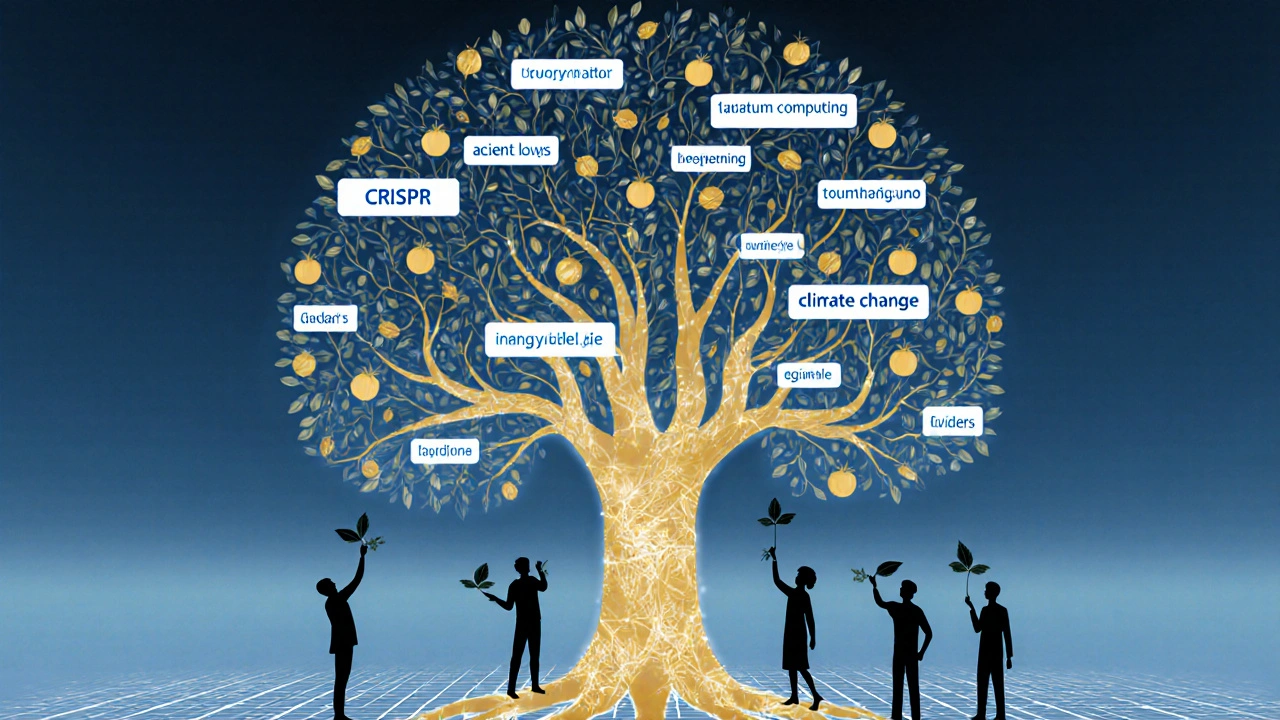
The Business of Knowledge: How Wikipedia Makes Money (and Why It Doesn’t Sell Ads)
Wikipedia doesn’t run ads. It doesn’t sell data. It doesn’t have a parent company. It’s run by the Wikimedia Foundation, a nonprofit funded almost entirely by small donations-over $150 million in 2024 alone. That’s unusual in the digital age.
Researchers have studied this model closely. A 2021 paper in Science argued that Wikipedia’s success proves that open, community-driven knowledge can outperform commercial platforms when it comes to neutrality and scale. Unlike Google or Facebook, Wikipedia has no incentive to manipulate search results or promote sensational content. Its goal is to summarize consensus, not maximize clicks.
But that model has limits. The foundation spends millions on server costs, legal defense, and outreach programs. It can’t afford to hire professional editors for every topic. That’s why some areas-like climate science or AI ethics-are better covered than others. Volunteers fill the gaps, but they’re not always experts. That’s where academic partnerships come in.
Academics Are Starting to Contribute-And It’s Changing Wikipedia
More universities are encouraging professors and students to edit Wikipedia. The University of California system has a formal “Wikipedia in the Classroom” program. In 2023, over 300 academics from Stanford, MIT, and the University of Toronto added peer-reviewed research directly into Wikipedia articles.
One study tracked how articles on climate change improved after researchers added citations from recent IPCC reports. The average length of those articles increased by 40%. The number of citations per article jumped from 12 to 28. And the edit wars over climate denialism dropped by 60%-because the evidence became harder to ignore.
These aren’t just cosmetic changes. They’re structural. When experts contribute, they don’t just add facts-they add context. They explain why certain studies matter, how methodologies differ, and where consensus exists. That’s something algorithms and casual editors can’t replicate.
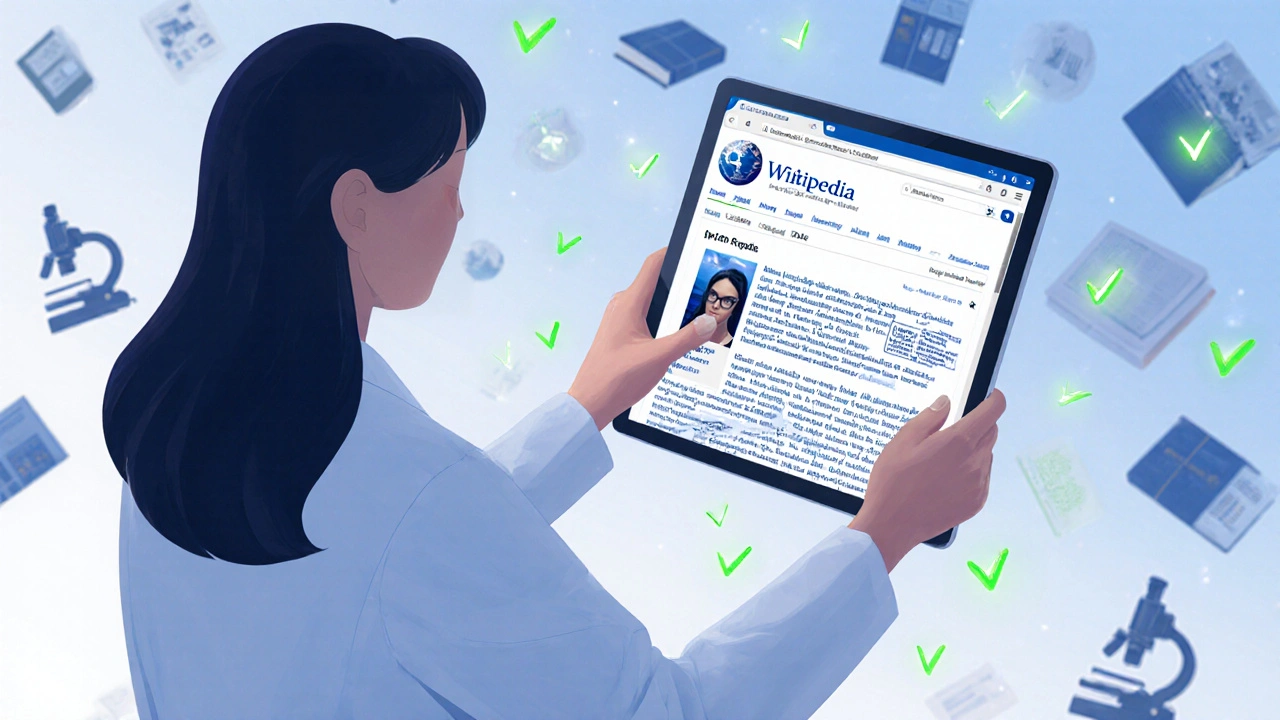
What’s Next? The Future of Wikipedia in Research
Wikipedia is evolving from a reference tool into a research platform. Projects like WikiCite are building a linked database of all the sources cited in Wikipedia articles-making it searchable like a scholarly index. The WikiData project is turning Wikipedia’s infoboxes into structured data that machines can read, used by Google, Amazon, and even medical AI systems.
Researchers are now using Wikipedia’s edit history to study how knowledge spreads. One team analyzed over 2 billion edits to track how scientific terms entered public discourse. They found that terms like “CRISPR” and “quantum computing” went from niche jargon to mainstream understanding in under five years-mostly because of Wikipedia.
The biggest challenge? Sustainability. The number of active editors has been declining since 2007. Fewer young people are joining. The interface hasn’t changed much. The rules are still confusing. Without new contributors, the quality of newer topics will suffer.
But the potential is huge. Imagine a world where every university course contributes to Wikipedia. Where every published paper gets summarized in plain language for public access. That’s not science fiction-it’s already happening in labs and classrooms around the world.
What This Means for You
If you’re a student: Use Wikipedia to find sources, not to cite them. Check the references. Follow the trail back to the original paper. You’ll learn more than if you’d just copied a paragraph.
If you’re a researcher: Consider editing. Even one well-sourced paragraph can improve access to knowledge for millions. You don’t need to write a whole article. Fix a citation. Update a date. Clarify a term.
If you’re just curious: Understand that Wikipedia isn’t perfect-but it’s the most accurate, most accessible, and most transparent encyclopedia ever built. Its flaws come from its openness, not its design. And that’s what makes it worth protecting.
Is Wikipedia a credible source for academic papers?
No, Wikipedia is not considered a credible primary source for academic papers. You cannot cite it directly in scholarly work because it’s a secondary summary, not an original research source. But it’s excellent for finding credible sources-every Wikipedia article lists references at the bottom. Use those to track down peer-reviewed journal articles, books, or official reports.
Why do professors discourage using Wikipedia for research?
Professors discourage citing Wikipedia because it’s editable by anyone, which means content can change without notice. Academic writing requires stable, verifiable sources. But many now encourage using Wikipedia as a starting point to learn key terms, find important authors, and locate original sources. The goal isn’t to avoid Wikipedia-it’s to go beyond it.
Are Wikipedia articles peer-reviewed?
No, Wikipedia articles are not peer-reviewed in the traditional academic sense. But they’re reviewed by thousands of editors who check for accuracy, citations, and neutrality. Some articles, especially on high-profile topics, undergo formal "good article" or "featured article" review processes that are stricter than many journal reviews. The difference is that Wikipedia’s review is public and ongoing, not a one-time gatekeeping process.
Do scientists contribute to Wikipedia?
Yes, and their contributions are growing. Institutions like MIT, Stanford, and the University of Edinburgh now run programs that train researchers to edit Wikipedia. Scientists add new findings, update outdated info, and correct misinformation. In fields like genetics and climate science, Wikipedia articles are now among the most accurate public summaries available.
Is Wikipedia biased?
Yes, but not in the way most people think. Wikipedia’s bias comes from its contributors, not its rules. Since most editors are male, Western, and tech-savvy, topics related to those groups are better covered. Biographies of women, non-Western cultures, and indigenous knowledge are underrepresented. Researchers have documented this gap for years. Efforts to fix it-like edit-a-thons focused on women in science-are slowly making a difference.
How does Wikipedia stay free and ad-free?
Wikipedia is funded by the Wikimedia Foundation through small donations from millions of users-averaging $15 per donor. It doesn’t accept corporate sponsorships or run ads. In 2024, it raised over $150 million from 35 million donors. This model keeps it neutral and independent. Critics say it’s unsustainable, but supporters argue that public funding for knowledge is essential in a democratic society.
Wikipedia is not a perfect tool. But it’s the most powerful one we’ve ever had for sharing knowledge openly. The research doesn’t just tell us what’s wrong with it-it shows us how to fix it. And that’s something worth paying attention to.
